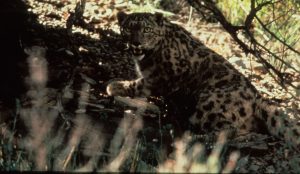From participatory research to empowering projects and national policies—this is the legacy of Future Generations University.
“A just and lasting future is possible for almost everyone on earth.”
This is the first sentence of Just and Lasting Change, a book published by Johns Hopkins University on how communities own their future. This philosophy finds proof at Future Generations University and in this series of blog posts exploring the impact of five University research projects.
For more than three decades, results have grown at scale where research has informed new policies that help local projects take root and improve lives. Over the course of the next few weeks, we will examine how University projects have not only created seminal research on community healthcare in Peru and Afghanistan, conservation in China’s Tibet Autonomous Regon, and sustainable land use in Appalachia—but how those projects have shifted political realities, informing new policies and guiding national strategies.
Partnerships between University researchers, local people, and governments reframe the practice of community development with lasting progress. This research informs all levels of policy: international organizations, national governments, local administrations, and community decision makers.
This model has worked in dozens of countries spanning more than 30 years, as Future Generations University research has reshaped the policy landscape, allowing for fruitful relationships that advance a just and lasting future.
Research Questions
- Can nature conservation occur in tandem with economic development, without being driven by money, among the world’s poor, and at large scale?
- How to protect endangered species in close contact with people when international wildlife regulations have proven ineffective?
Policy Results
- A new nature preserve model, including the world’s largest community-based preserve; this inspired the formation of 18 nature preserves protecting 54 percent of Tibet Autonomous Region.
- A Tibet-wide ban on the sale of endangered animal body parts.
On the Ground Impact
China’s Tibet is a global leader in conservation linked to development, improving ecosystems while benefiting local economic prospects; simultaneously, populations of snow leopards, musk deer, Tibetan antelope, and wild yaks have all increased dramatically.
Courses offered by future generations universities are:
1. Masters in community development: Future Generations University helps people learn to shape better futures for their communities and the world. Learn from our faculty of experts the interdisciplinary field of Applied Community Development , how to start, and scale-up community-driven change that is inclusive and sustainable.
2. Certificate in community development: Not ready for a Master’s but still want to build your skills? Earn a Certificate in Applied Community Development to deepen your understanding or as part of your journey in higher education. This program can be taken by anyone interested in learning, regardless of educational background and offers a flexible course load.
3. Maple production training program: You can tap into one of Appalachia’s most abundant resources and build a successful syrup business with Future Generations University. Learn about sustainable land-use practices and woodlot management, while receiving maple syrup training through our certificate program, public seminars, or webinar series.
This article was posted on the future generations website. you can find the source here.
